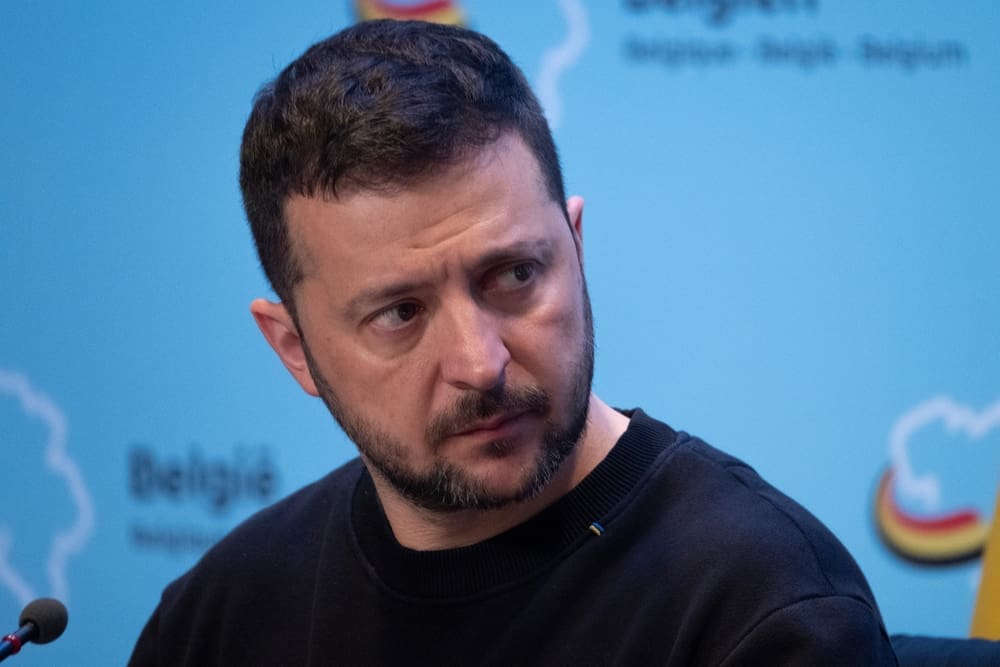Ukrainian President Volodymyr Zelenskyy has called for more stringent measures against Russia to compel President Vladimir Putin into agreeing to a ceasefire. This plea comes in the wake of continued drone strikes, which Zelenskyy claims demonstrate Moscow’s indifference towards diplomatic efforts.
Despite U.S.-mediated attempts to initiate a ceasefire in Ukraine as a precursor to a broader peace agreement, long-range cross-border strikes have persisted. Recently, both Kyiv and Moscow agreed to halt attacks in the Black Sea and on energy infrastructure, yet mutual accusations of violating this agreement have since emerged.
In a video address on Sunday evening, Zelenskyy reported increasing strikes and shelling across seven Ukrainian regions. “The geography and brutality of Russian strikes, not just occasionally, but literally every day and night, show that Putin couldn’t care less about diplomacy,” he remarked. Highlighting a standing U.S. proposal for an unconditional ceasefire, Zelenskyy noted, “And almost every day, in response to this proposal, there are Russian drones, bombs, artillery shelling, and ballistic strikes.”
He stressed the necessity of intensifying pressure on Russia, advocating for “all the tough measures that can break its capacity to wage war and sustain the system that wants nothing but war,” including essential sanctions against Russia and increased air defense for Ukraine.
President Donald Trump, expressing apparent frustration over the stalled peace efforts, told NBC News he was “very angry” with Putin, particularly after the Russian leader criticized Zelenskyy and suggested his replacement with a transitional government. Trump mentioned potential new sanctions on Russia’s lucrative oil exports and countries purchasing its oil, such as China and India.
During a conversation with reporters aboard Air Force One, Trump stated his administration was making significant progress toward resolving the conflict. Regarding his relationship with Putin, Trump said, “I don’t think he’s going to go back on his word,” emphasizing their longstanding rapport despite historical tensions.
Trump also expressed disappointment with Putin‘s recent comments about Zelenskyy, indicating a lack of credibility on Zelenskyy’s part. “He’s supposed to be making a deal with him, whether you like him or you don’t like him, so I wasn’t happy with that,” Trump commented. When asked about a deadline for Russia to agree to a ceasefire, Trump alluded to a “psychological deadline,” adding that if he senses any stalling, he would be displeased.
On Monday, Kremlin spokesperson Dmitry Peskov stated that Putin remains “absolutely open” to discussions with President Trump, and any necessary conversation could be promptly organized. However, no phone conversation has been scheduled at present.
Meanwhile, cross-border strikes between Russia and Ukraine continued from Sunday night into Monday morning. Ukraine’s air force claimed that Russia launched two missiles and 131 drones overnight, with 57 drones shot down and 45 failing without causing damage.
The affected regions included Sumy, Donetsk, Kharkiv, Kyiv, and Zhytomyr. Conversely, Russia’s Defense Ministry reported downing 66 Ukrainian drones overnight, with 41 over the Bryansk region, 24 over the Kaluga region, and one over the Kursk region.
The Bottom Line
- Increased global tensions may lead to higher energy prices, impacting consumers worldwide as sanctions on Russian oil exports could alter market dynamics.
- Continued conflict disrupts global supply chains, affecting the availability and cost of goods, which may strain household budgets and business operations.
- The persistent military engagement could prompt further geopolitical instability, affecting international relations and security measures across multiple regions.
- Heightened military activity increases the risk of accidents or escalation, potentially impacting neighboring countries and international peace efforts.
- Humanitarian concerns rise as ongoing strikes lead to displacement and a growing refugee crisis, necessitating international aid and support.
- Economic implications loom large as protracted conflict diverts resources from development and growth, affecting global financial markets and national economies alike.














